Globalization and Regionalization
Area of Knowledge: Globalization and regionalization (e-learning,  ,
Courses, Masters, Doctorate)
,
Courses, Masters, Doctorate)

Study Methodology - EENI Global Business School.
The main subjects (learning units) of the “Globalization and Regionalization” Area of Knowledge are:
Online Courses, Masters and Doctorate related to the Globalization and Regionalization:
The objectives of the Area of Knowledge “Globalization and Regionalization” taught by EENI are the following:
- To understand the concept of globalization (or globalisation in American English) and its influence on international business
- To know the world's major economic institutions related to the Globalization
- United Nations
- UNCTAD
- International Trade Centre (ITC)
- WB
- WTO
- IMF
- OECD
- ...
- To learn about the regionalization in Asia, Africa, America, Europe, and the Middle East

Languages:  or
or  Globalización
Globalización  Mondialization
Mondialization  (free multilingual training).
(free multilingual training).
- Credits of the module “Globalization”: 6
 (European Credit Transfer and Accumulation System)
(European Credit Transfer and Accumulation System) - Download the syllabus “Globalization” (PDF)
- Duration: 5 weeks
- Methodology: e-learning/Online
Globalization.
In the last few years, the world Economy has gone through some major changes, the result of which has been the creation of a global market. With the establishment of the WTO, almost all the economies in the World are likely to establish a more and more interdependent relationships with each other.
Globalization means that the flows of products, services, capital, technologies, and people are spreading worldwide, the countries everywhere open up to a wider contact with each other.
Regionalization.
The regionalism is described as “the actions taken by the governments to liberalize or facilitate the trade on a regional basis, sometimes through the free-trade areas or customs unions.”
If we take into account the Regional Trade Agreements (RTA), which are in force but have not been notified, those signed but not yet in force, those currently being negotiated, and those in proposal stage; we arrive at a figure of close to 400 RTAs which are scheduled to be implemented.
Of these RTAs, the Free Trade Agreements and partial scope agreements account for over 90%, while the customs unions account for less than 10%.
Globalization and regionalization: main agreements and institutions.
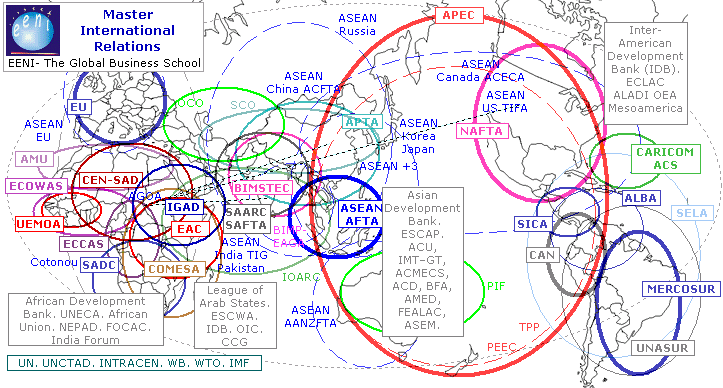
International Business Modules.
Sample: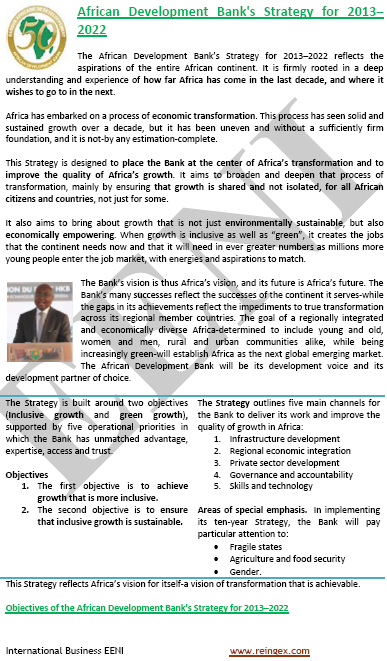
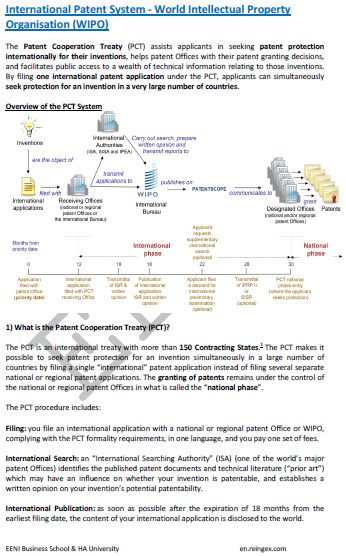
Sample: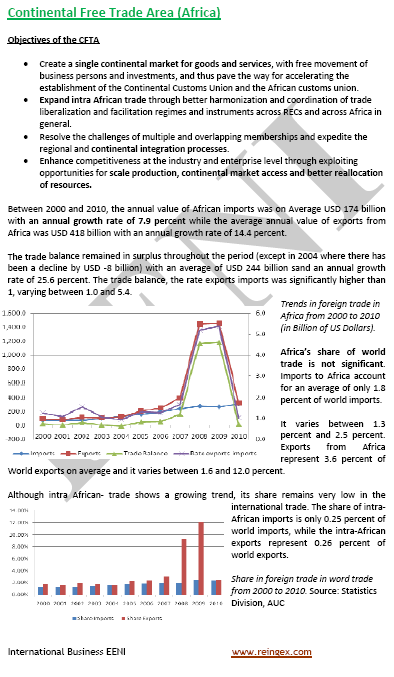
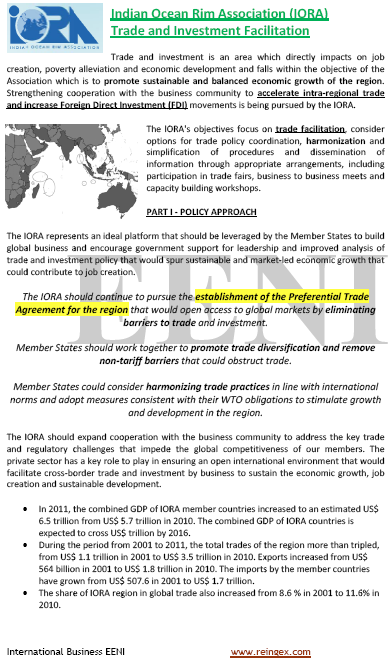
(c) EENI Global Business School (1995-2024)
We do not use cookies
Top of this page



